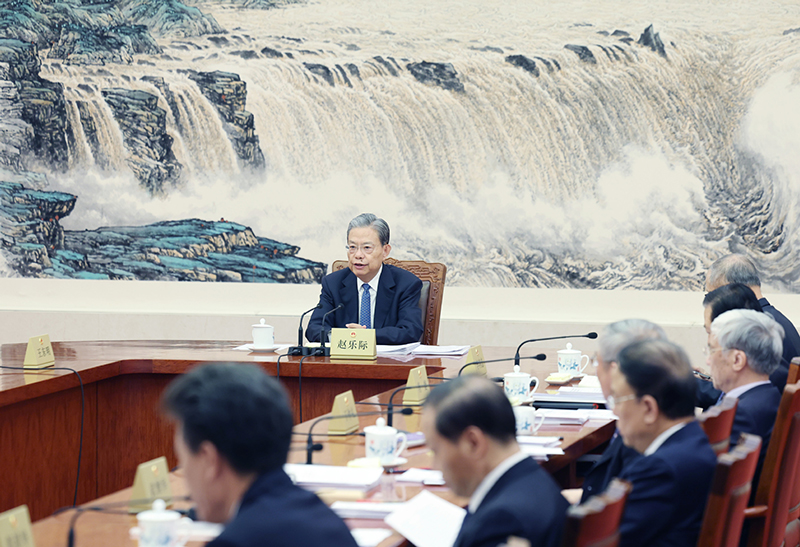
BEIJING - China's top legislature on Monday started a regular session to review a raft of bills including law drafts and reports.
Zhao Leji, chairman of the 14th National People's Congress (NPC) Standing Committee, presided over the first plenary meeting of the committee's 14th session.
Lawmakers reviewed a draft private sector promotion law, and a proposal on reviewing a revised draft of the civil aviation law. In preparations for the upcoming third session of the 14th NPC, lawmakers deliberated a work report of the NPC Standing Committee, the draft agenda of the NPC session, the draft name lists of the session's presidium and secretary-general, and a draft name list of the members invited to sit in on the session as non-voting participants.
ALSO READ: China's top legislature schedules session for late February
Lawmakers also heard a deputy qualification report and reviewed personnel-related bills.
A draft revision to the civil aviation law was submitted to safeguard territorial airspace sovereignty and civil aviation rights and promote the sector's high-quality development.
READ MORE: Xi urges boost for private sector
Consisting of 15 chapters and 255 articles, the draft makes comprehensive amendments to the existing civil aviation law. Key revisions include enhancing the safety of civil aviation, requiring civil airports to have the capability to prevent and address threats from unmanned aerial vehicles, and fine-tuning the entry criteria for public air transport enterprises and commercial general aviation companies.
One highlight is the development of general aviation and the low-altitude economy. China will accelerate the building of infrastructure for general aviation, enrich its services, and develop civil airports, while also ensuring that the reasonable demand for airspace of the low-altitude economy is met, the draft says.
READ MORE: China's homegrown AG600M amphibious aircraft complete first test flights in year of Snake
The revised draft also contains provisions regarding the protection of passenger rights, the alignment with relevant international regulations, and the supervision and regulation of activities related to civil aviation.
The current civil aviation law came into force on March 1, 1996, and has undergone six amendments since then.


